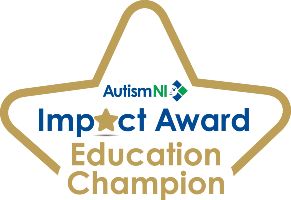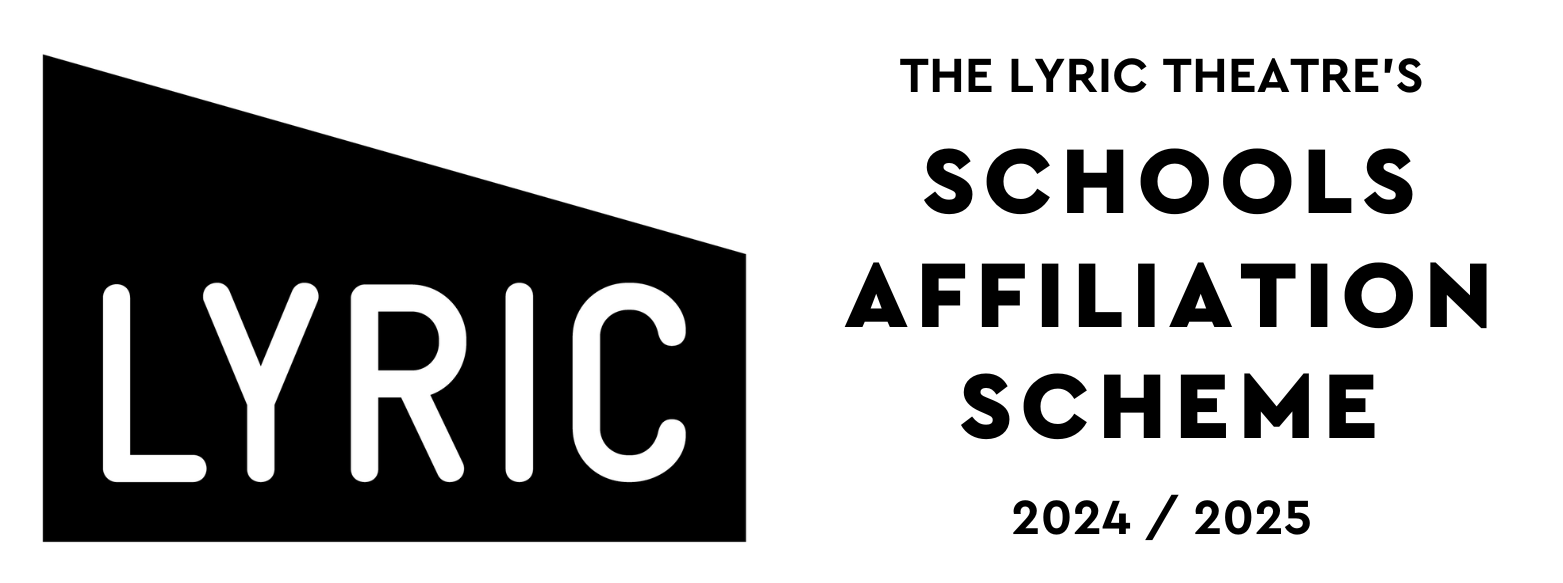Geography
SPECIFIC AIMS OF THE DEPARTMENT
The Geography Department aims to:
-
ensure that children enjoy Geography in St. Mary’s;
-
encourage achievement in all pupils, regardless of gender or ability;
-
develop pupils’ knowledge and understanding of the world;
-
equip pupils with a wide range of geographical skills:
-
advance pupils’ appreciation of the variety of physical and human conditions on the earth’s surface and recognise the interaction between them;
-
develop pupils’ respectful appreciation of the beliefs, values and attitudes of other people;
-
increase pupils’ confidence in working individually and as part of a group;
-
enable pupils to become proficient in the application and use of ICT, including GIS;
-
provide opportunities for pupils to develop and display personal capabilities such as: Managing information, Working with Others, Problem-Solving, Being Creative and Self-Management.
OVERVIEW OF KEY STAGE 3 CURRICULUM
At Key Stage 3, all pupils study Geography. The subject is delivered over four, fifty minute lessons per fortnight. Pupils engage in a stimulating, challenging and engaging programme of study which embraces physical, human and environmental geography.
The study of Geography at Key Stage 3 gives pupils’ chances to explore:
-
their sense of identity and belonging;
-
their curiosity about the world around them; and
-
their value system about how they interact with the world and with each other.
In terms of assessment at Key Stage 3, pupils will complete four Continuous Monitoring tasks during the year, in line with the whole school assessment procedures.
YEAR 8 CURRICULUM
The emphasis in Year 8 is on pupils acquiring basic geographical skills, learning key geographical facts and understanding simple concepts.
In Year 8, Pupils study the following topics:
-
What is Geography?
-
My Local Area
-
Mapping Skills
-
Africa (including an ICT task on tribes of Africa)
-
Economic Activity
-
Weather (includes a weather enquiry)
-
Settlement (includes a fieldwork enquiry based in Magherafelt)
YEAR 9 CURRICULUM
In Year 9, Pupils study the following topics:
-
Ecosystems
-
Our Frozen Planet
-
Global Inequalities (including an ICT task)
-
Population and Migration
-
Rivers
YEAR 10 CURRICULUM
In Year 10, Pupils study the following topics:
-
Geography and Careers
-
Risky World
-
Our Changing World
-
The Geography of Sport
OVERVIEW OF KEY STAGE 4 CURRICULUM
At Key Stage 4, the Geography Department offers Geography at GCSE Level. Pupils follow the CCEA specification. Geography is delivered over six lessons per fortnight.
The study of GCSE Geography is divided into three units:
-
Unit 1: Understanding Our Natural World
-
Unit 2: Living in Our World
-
Unit 3: Fieldwork
It offers opportunities to build on the skills and capabilities developed through the delivery of the Northern Ireland Curriculum at Key Stage 3. Fieldwork is assessed through an external examination supported by primary data collection.
There is one tier of entry for all students.
Unit 1: Understanding Our Natural World [40%]
This unit has four themes covering physical geographical processes and systems, and human interaction with them.
Theme A: River Environments (25%)
Theme B: Coastal Environments (25%)
Theme C: Our Changing Weather and Climate (25%)
Theme D: The Restless Earth (25%)
This unit is assessed in the form of a written examination. The examination includes four multi-part questions, one on each theme. Each question includes resource material that may take a variety of forms, including photographs, data, models, diagrams and/or text. Each question also includes some parts that require extended writing.
Candidates answer all four questions.
Pupils will have 1 ½ hours to complete the assessment for this unit.
Assessment of this unit will take place at the end of Year 11.
Unit 2: Living in Our World (40%)
This unit has four themes covering key aspects of human geography.
Students investigate topical issues such as the challenges facing refugees, issues for inner city areas in MEDCs, strategies such as the United Nations’ 2030 Agenda for Sustainable Development, and the environmental impact of the increasing use of resources.
Theme A: Population and Migration (25%)
Theme B: Changing Urban Areas (25%)
Theme C: Contrasts in World Development (25%)
Theme D: Managing Our Environment (25%)
This unit is assessed in the form of a written examination. The examination includes four multi-part questions, one on each theme. Each question includes resource material that may take a variety of forms, including photographs, data, models, diagrams and/or text. Each question also includes some parts that require extended writing.
Candidates answer all four questions.
Pupils will have 1 ½ hours to complete the assessment for this unit.
Assessment of this unit will take place at the end of Year 12.
Pupils’ work in this unit will be externally assessed.
Unit 3: Fieldwork [20%]
In this unit, students collect geographical data first-hand through
fieldwork. Fieldwork is an essential aspect of geography. It involves applying specific geographical knowledge, understanding and skills to a particular and real out-of-classroom context. The value of fieldwork goes beyond the aim of collecting primary data. Other key aspects of the investigative process include presenting and analysing results, drawing conclusions and reflecting critically on the process. Experiencing geographical concepts, processes and issues in the real world can be illuminating for students. They gain new geographical insights and begin to appreciate different perspectives on the world around them.
This unit is assessed in the form of a written examination.
Pupils will have 1 hour to complete the assessment for this unit.
Assessment of this unit will take place at the end of Year 12.
Pupils collect geographical data first-hand through fieldwork and must create and submit a word-processed fieldwork statement and table of data.
Pupils’ work in this unit will be externally assessed.
OVERVIEW OF KEY STAGE 5 CURRICULUM
At Key Stage 5, the Geography Department offers Geography at AS and A2 Level. Pupils follow the CCEA specification. At AS and A2 Level, Geography is delivered over eleven periods per fortnight.
At AS Level, pupils must successfully complete three modules. A further three modules must be successfully completed at A2 Level.
AS Geography Unit 1: Physical Geography (40% of AS; 16% of A Level)
This unit aims to develop students’ knowledge and understanding of physical processes and
environments and human interaction with them at a range of scales and in a range of places. Students investigate fluvial environments, local and global ecosystems, and the processes that shape weather and climate. They have opportunities to use a range of technologies, including GIS, to enhance knowledge and understanding.
This unit is assessed in the form of a 1 ¼ hour written examination that includes both short response questions and extended writing questions.
Assessment of this unit will take place at the end of Year 13.
Pupils’ work in this unit will be externally assessed.
Unit 2: Human Geography (40% of AS; 16% of A Level)
This unit has three themes covering key aspects of human geography, population, settlement and development issues. Students investigate how different human systems and relationships across our world change over space and through time and explore a range of places at a variety of scales.
Students can use a range of technologies to aid their understanding of the most recent developments in human geography, including GIS.
This unit is assessed in the form of a 1 ¼ hour written examination that includes both short response questions and extended writing questions.
Assessment of this unit will take place at the end of Year 13.
Pupils’ work in this unit will be externally assessed.
Unit 3: Fieldwork Skills and Techniques in Geography (20% of AS; 8% of A Level)
In this unit, pupils are required to become actively involved in collecting geographical data first-hand through fieldwork.
Students identify geographical questions and issues, select appropriate sources and methods and establish effective approaches to inquiry in their geographical studies.
This unit is assessed in the form of a written examination.
Pupils collect geographical data first-hand through fieldwork and must create and submit a word-processed fieldwork statement and table of data.
Pupils will have one hour to complete the assessment for this unit.
Assessment of this unit will take place at the end of Year 13.
Pupils work in this unit will be externally assessed.
A2 Geography Unit 4: A2 1: Physical Processes, Landforms and Management (24% of A Level)
In this unit, two options are chosen from the four available.
Option A: Plate Tectonics – Theory and Outcomes
Option B: Tropical Ecosystems – Nature and Sustainability
Option C: Dynamic Coastal Environments
Option D: Climate Change – Past and Present
In St. Mary’s students are required to study Options A and C.
This assessment unit is a 1 hour 30-minute written examination. It has four parts. Each part corresponds with one of the four options listed in the subject content. Each of these parts includes two structured questions.
Candidates must answer two questions, one from each of their two chosen options.
Each question is worth 35 marks, and has at least one extended element with a minimum of 15 marks.
Pupils will have 1 ½ hours to complete the assessment for this unit.
Assessment of this unit will take place at the end of Year 14.
Pupils’ work in this unit will be externally assessed.
Unit 5: A2 2: Processes and Issues in Human Geography (24% of A Level)
In this unit, two options are chosen from the four available.
Option A: Cultural Geography
Option B: Planning for Sustainable Settlements
Option C: Ethnic Diversity
Option D: Tourism
In St. Mary’s students are required to study Options A and C.
This assessment unit is a 1 hour 30-minute written examination. It has four parts. Each part corresponds with one of the four options listed in the subject content. Each of these parts includes two structured questions.
Candidates must answer two questions, one from each of their two chosen options. Each question is worth 35 marks and has at least one extended element with a minimum of 15 marks.
Pupils will have 1 ½ hours to complete the assessment for this unit.
Assessment of this unit will take place at the end of Year 14.
Pupils’ work in this unit will be externally assessed.
Unit 6: A2 3: Decision Making in Geography (12% of A Level)
In this unit, pupils are required to develop decision-making skills in a real-world scenario. They identify and analyse appropriate material, examine conflicting values and make and justify recommendations.
This assessment unit is a 1 hour 30-minute written examination.
Candidates must complete a decision-making exercise. This takes the form of a case study and is worth 60 marks. Candidates are presented with a variety of resources which they must analyse, interpret and evaluate. They take on a particular role and examine values arising from the case study.
Candidates make recommendations, based on the case study, and justify them.
Assessment of this unit will take place at the end of Year 14.
Pupils’ work in this unit will be externally assessed.
ADDITIONAL SUBJECT INFORMATION
EXTRA- CURRICULAR PROVISION
The Geography Department contributes extensively to the school’s extra-curricular provision. Extra-curricular activities include:
-
Organisation of Fieldwork across Key Stages
-
Geographical Association Geography Awareness Week.
FACILITIES AND RESOURCES
Geography is a dynamic and relevant subject for all young people. The world in which we live is likely to change more in the next 50 years than it has ever done before.
Geography explains why and helps to prepare young people for those changes. Geography enables young people to learn and develop a number of skills that will be useful to them in the future. These skills include communication skills, teamwork, management skills, analytical skills as well as being spatially, socially and environmentally aware. Equipped with these skills, Geographers are among the most employable people in the world of employment today.
Geography is also one of the “facilitating subjects” recommended by the Russell Group of Universities, which includes Queen’s University, Belfast. Choosing a facilitating subject to study at A-Level means young people having a much broader range of options open to them at university.
In recent years, our A-Level Geography students in St. Mary’s have gone on to study a wide variety of courses at university, including
-
Construction, Engineering Management
-
Business Economics
-
Pharmacy
-
Medicine
-
Biological Science
-
Civil and Environmental Engineering
-
Electronic and Software Systems Engineering
-
Veterinary medicine
-
Speech and Language Therapy
-
Dentistry
-
Chemical Engineering
-
Radiotherapy and Oncology









